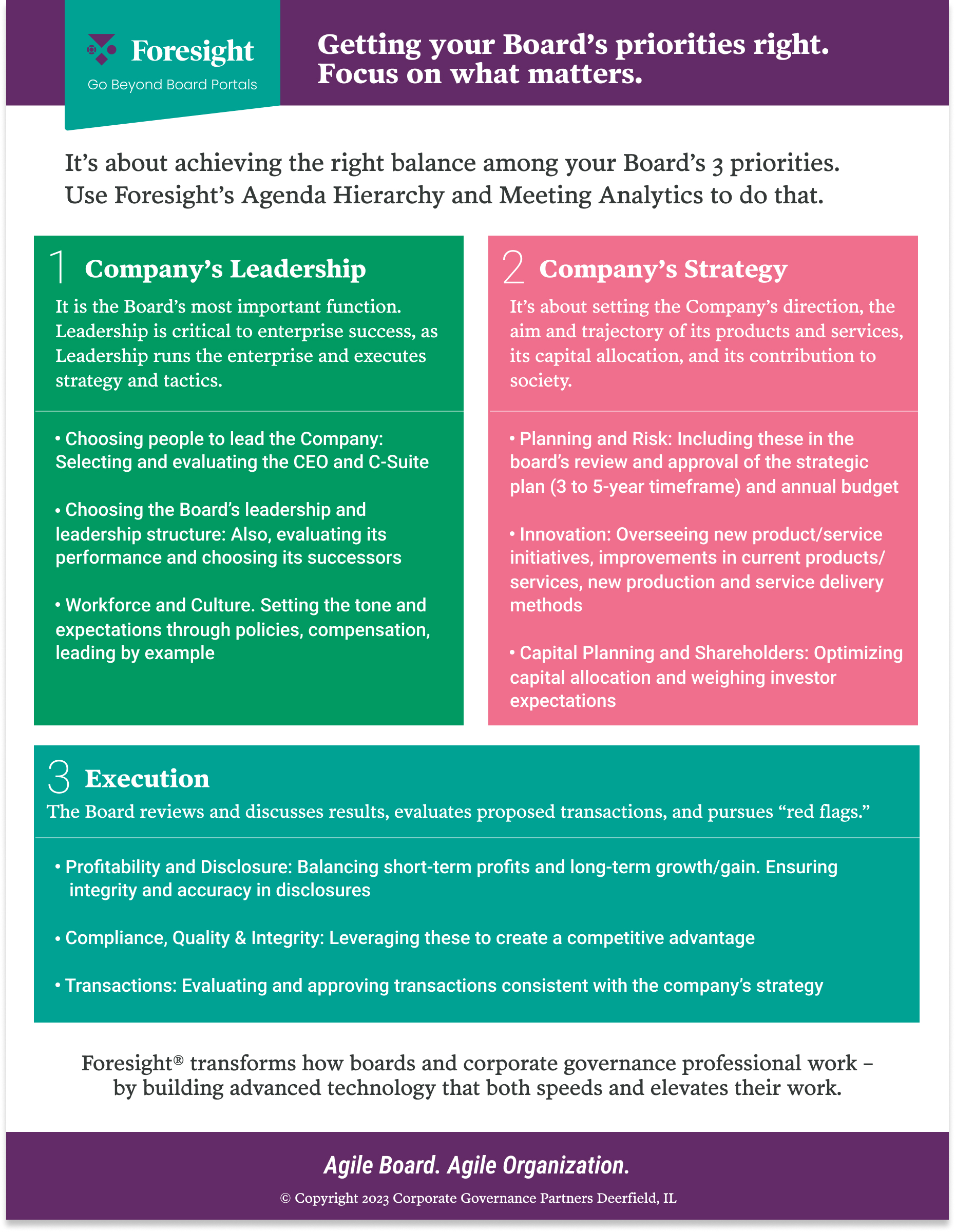
The Year-Long Agenda
The Year-Long Agenda Plan for your Board

Foresight Dashboard
It’s a smart idea to assemble a year-long list of agenda items for the board and each committee before year-end. Calendar up a date for the start of this process so it doesn’t get overlooked. The General Counsel, CEO and board chair or committee chairs should collaborate to decide the plan.
Before you start, complete the board and committee self-assessments and decide on priorities for the coming year. (For example, the compensation committee want to focus on executive compensation redesign this year.) That sequence allows the annual agenda to reflect those discussions and decisions. Otherwise, the agreed upon priorities can be overlooked.
Everyone knows that the details of each meeting’s agenda will need to deviate from the plan during the course of the year, but the discipline of an annual agenda plan increases the likelihood that the board and committees will address both their obligations (think of all of the “To Dos” captured in the committee charters!) as well as their identified priorities. It also give the chair a tool for keeping the group on topic – “Good question, Bob, and we’ll cover that topic in November.”
Individual Meeting Agendas Flow Out of the Annual Agenda Plan
When your company has a year-long plan for board and committee agendas, those plans serve as the starting point for preparing each individual meeting’s agenda. It’s good to do that 6 to 8 weeks in advance of the meeting (more, when laying out your review of the company’s strategic plan) Then confirm that the agenda is still generally in line with the needs and priorities established.
Of course, an annual agenda is just that – a broader, overarching document. You’ll need to be flexible to take advantage of new opportunities or to address unforeseen problems as they arise. For example, if the bond market is moving in a way that provides an environment for opportunistic tenders or issuances, be ready to act. Board authority will be needed – and, well, it’s better to flag that possibility several weeks or two months before the meeting, rather than closer. This approach means that the CFO or Treasurer can work it with the Chair of the Finance Committee or Lead Director in a way that’s not time pressured and unnecessarily stressful.
Learn how Foresight’s proprietary Agenda Hierarchy tool makes this simpler and clearer.

